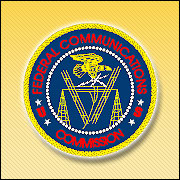
The Federal Communications Commission this week released a proposal to kill the sports blackout rules that can prevent local TV broadcasts of games when a stadium doesn’t sell out.
The rules regarding blackouts were adopted in 1975 when the majority of National Football League teams’ revenue came from ticket sales, the proposal notes. The laws were viewed as a way to spark ticket sales, with the belief that if the game weren’t broadcast, local fans would be more willing to spring for a ticket.
Voices of Opposition
The NFL previously has voiced opposition to eliminating the blackout rules, noting that they are in place to protect teams’ ability to fill their stadiums. The National Association of Broadcasters also spoke out against the proposal, noting that blackouts were becoming far less common than they were when the rules were adopted and that a change in policy could force consumers to turn away from local, over-the-air television and toward pay-TV options.
The FCC proposal also notes the decrease in blackouts. In 1974, the year before the commission adopted the blackout rule, 59 percent of regular season NFL games were blocked. By the 2011 season, that number dropped to just 6 percent, affecting games in four cities.
Supporters of the proposal to drop the blackout rules include Sens. John McCain, R-Ariz., and Richard Blumenthal, D-Conn., who have argued that the outdated rules favor cable or satellite companies over consumers. The Sports Fans Coalition also applauded the FCC’s move to reconsider the rules, claiming that blackouts are “anti-fan.”
Giving Old Rules a New Look
Times have changed for the league in the past 40 years. Now, with the NFL cashing in from other areas like advertising, sponsorships, and merchandise sales, it doesn’t have to rely as much on selling tickets.
Even though the blackouts come less frequently now, they can still be frustrating for those who are unable to attend games, including many elderly or disabled fans.
The fact that stadiums often are built with the help of local funds adds to that frustration, said Lucas Powe Jr., professor of sports law at the University of Texas.
“The blackout rule has been coming under a lot of fire from a lot of quarters over the past few years,” he told TechNewsWorld. “Part of the feeling is that many stadiums, with some exceptions, have huge public subsidies behind them. Should the people who are sometimes paying involuntarily for the stadium be denied the right to watch the game that goes on there, especially when, in this economy and with rising ticket prices, they can’t afford to go to the game?”
Chance to Pass
Now that the proposal has been released, the FCC will hear public commentary on both sides of the issue.
The NFL has spoken out against any changes, and even if the government ends its regulation, there’s nothing to stop the leagues, broadcasters, and service providers from cutting blackout deals based on their own rules.
However, the NFL has shown in the past it is open to change. Last year, the league modified its policy so that blackouts would be avoided if a team could sell at least 85 percent of its tickets.
“I’m not sure there will be that much pushback from the league,” Powe added. “It has already altered its rules somewhat, and a lot of the public opinion is against them on this one.”
In this case in particular, the commission might favor out with the old and in with the new, especially since the intersection of the sports and media worlds looks very different than it did in the mid-1970s, said James Hetz, an attorney with Hetz, Jones & Goldberg.
“Given the vast change in broadcast media distribution since the 40-year-old rule was enacted, the evidence will surely weigh in favor of repealing the rule,” he told TechNewsWorld. “The rule’s original intent was to protect a sports franchise’s ticket sales. With digital media and Internet distribution so prevalent and attendance up, the rule itself has become obsolete.”




















































